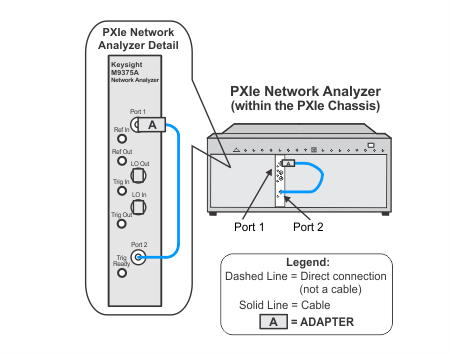
Trace noise is noise, at high signal levels, that affects the trace being measured. It is largely caused by FM-to-AM and PM-to-AM conversions in the receivers resulting from digital noise in ADC conversions and phase lock loop stability/performance in the receiver frequency conversion and the source.
Trace noise, which is a statement of the stability of a signal in a source/receiver system, is defined here as the RMS deviation away from the mean of the signal in either magnitude and—if there is a reference signal for comparison—phase. Since the standard deviation can be defined as the RMS about a zero mean, trace noise can be evaluated by measuring the receiver signal and examining the data for the standard deviation. For determination of magnitude trace noise, this should only be performed using linear magnitude since standard deviation of logarithmic data will distort the true values.
Click here for troubleshooting help.
|
Test Equipment |
Recommended Models |
|
Cable, 3.5 mm (f) to 3.5 mm (f) |
83059B |
|
Cable, 3.5 mm (f) to 3.5 mm (m) |
8121-2111 |
|
Adapter, 3.5 mm (m) to 3.5 mm (m) |
83059A |


